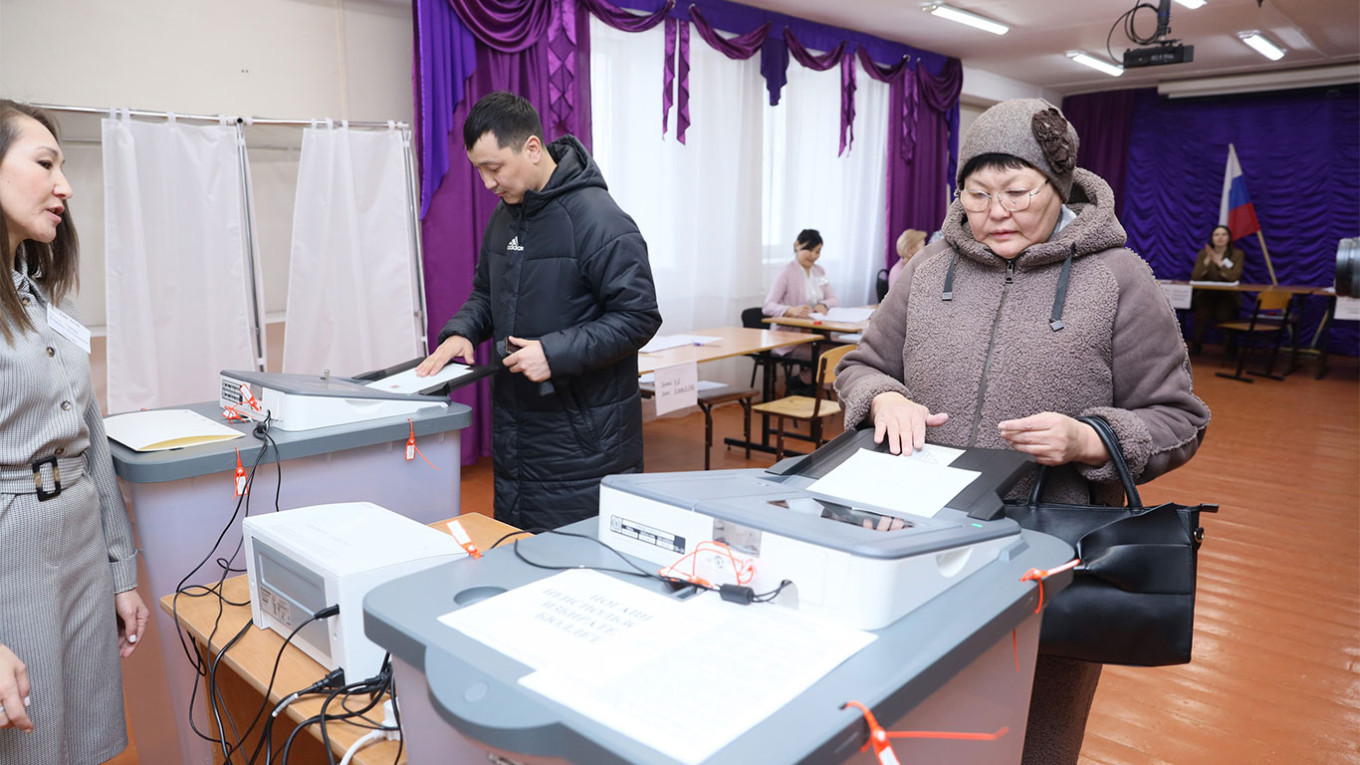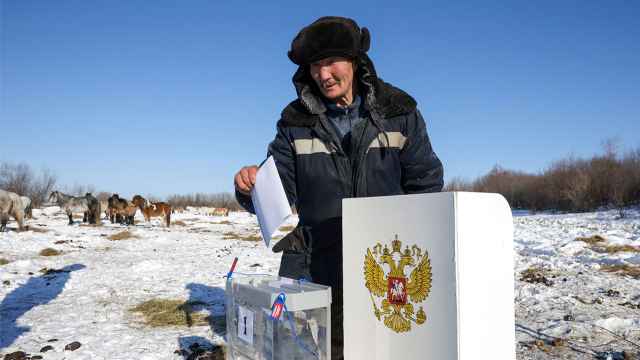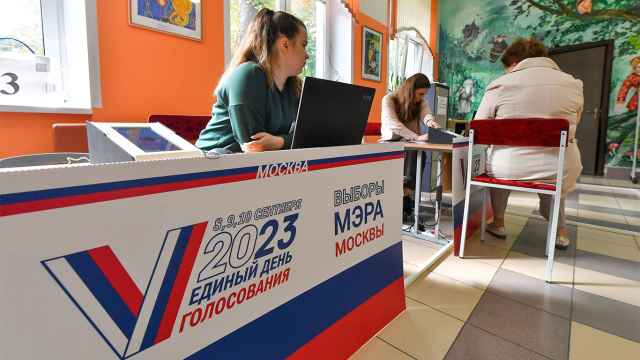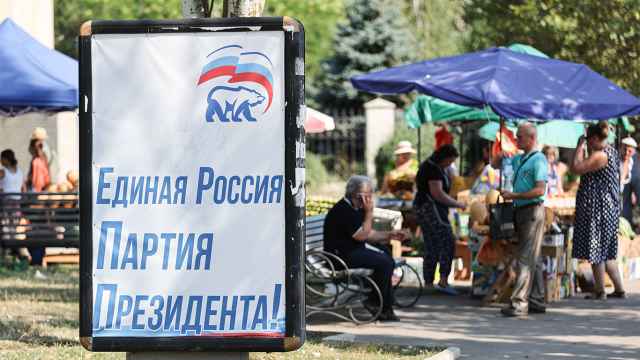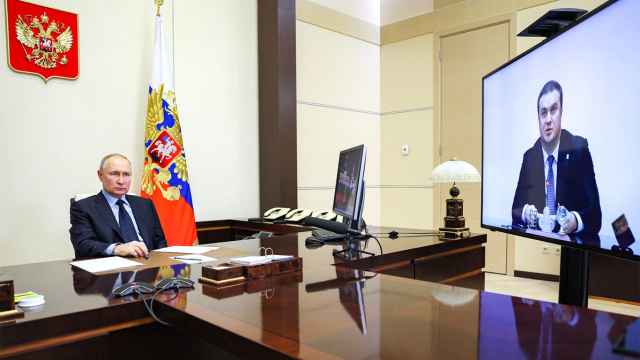In Russia’s ethnic republics, outsize war casualties, worsening economic conditions and even sweeping repressions are unlikely to catalyze voters against President Vladimir Putin in this weekend’s presidential election, experts and activists told The Moscow Times.
With most of the Russian opposition imprisoned, in exile or dead, Putin is expected to easily secure victory in the three-day vote that began across Russia on Friday, landing him his fifth term in office.
While some potential anti-Putin voters appear reluctant to go to the polls due to overarching feelings of apathy, other dissatisfied citizens continue to support Putin and blame their misfortunes on idle regional politicians.
This trend stands true even in Bashkortostan, a Turkic-majority republic in Russia’s Ural Mountains that was swept by repressions after witnessing some of the largest protests in wartime Russia earlier this year.
“Most people here don’t associate the arrests with the federal government, but rather with the regional one. They don’t see it as Putin’s actions because they love and support him,” a young woman from a village in Baymak district, the epicenter of the protests and subsequent repressions, told The Moscow Times.
The woman requested anonymity out of fears that speaking to the press could put her on local security forces’ radar.
“But Putin is also seen by them as someone very far removed, unattainable, so they feel like this is someone else’s election that has no meaning for them,” she added. “I am not even sure if people here [in the village] know that it is a three-day vote.”
Hundreds of people across the republic have been arrested and at least 56 are facing criminal prosecution following the rallies in support of jailed Bashkir activist Fayil Alsynov, according to the human rights watchdog OVD-Info.
Many residents have placed the blame for the persecution of peaceful protesters solely on local head Radiy Khabirov. Families of those arrested recorded dozens of on-camera appeals calling on Putin to interfere and “help unlawfully detained.”
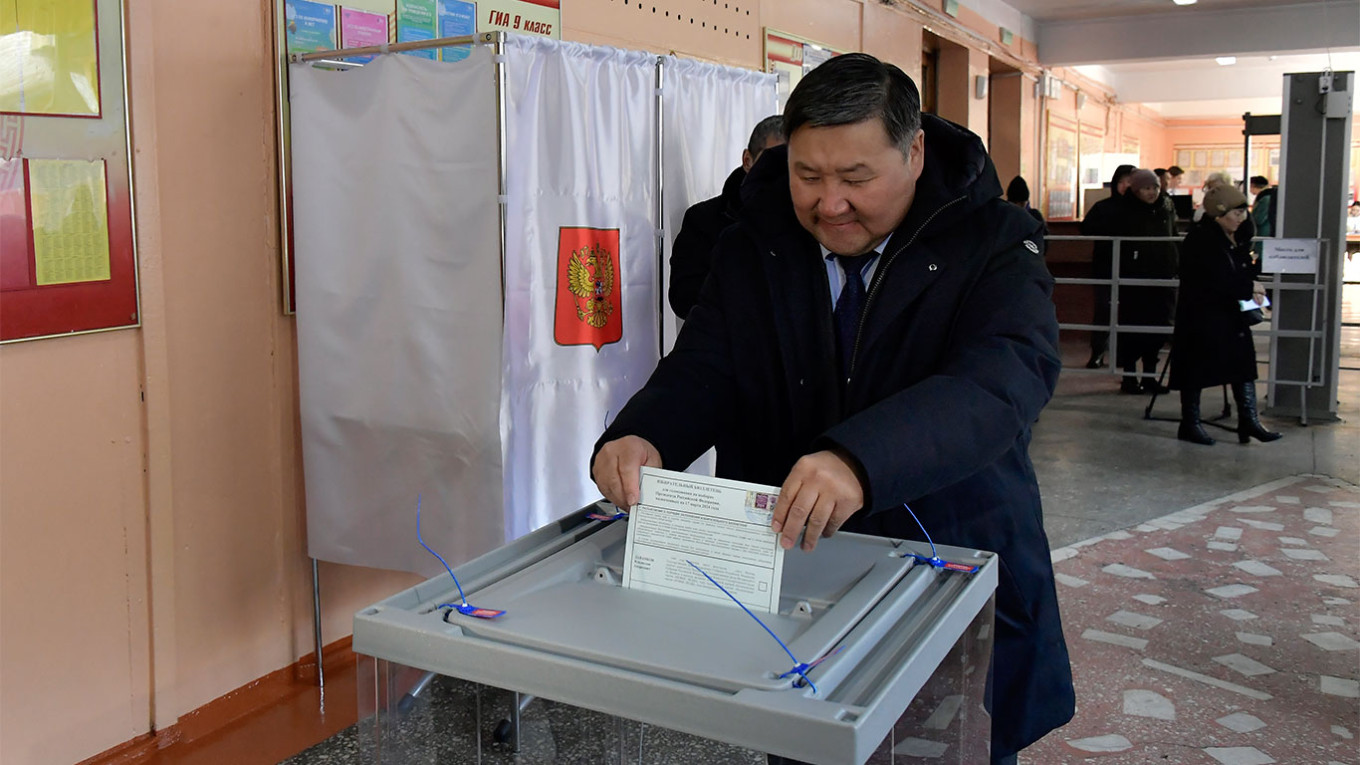
Yet despite a seemingly favorable situation for Putin, Bashkortostan could still show granular, but important shifts in voter behavior this week.
“There used to be an opinion among experts…that non-Russians show higher-than-average levels of support for the regime. But this will no longer happen,” said a Russia-based expert on regional politics who requested anonymity due to safety concerns.
“In the last election, in 2018, ethnic Bashkirs have changed their electoral behavior, their level of support for Putin decreased in particular. That election happened right after the language reform, which yielded a negative effect,” said the Russia-based expert, referencing the 2018 federal-level law that abolished the indigenous language education across Russia’s ethnic republics.
“But unlike the language reform, it is much more difficult to draw a direct parallel between [local post-protest repressions] and Putin’s politics,” he added.
Spotlighting the causal link between people’s misfortunes and policies directed by the man in the Kremlin became a key pillar of this year’s pre-election campaigning by anti-war and indigenous activists across Russia’s ethnic republics.
“We are seeing how peoples’ attitudes towards the war, towards Putin and towards Shoigu are changing,” said Sholbaana Kuular of New Tuva, an anti-war and decolonial movement from the Siberian republic of Tyva.
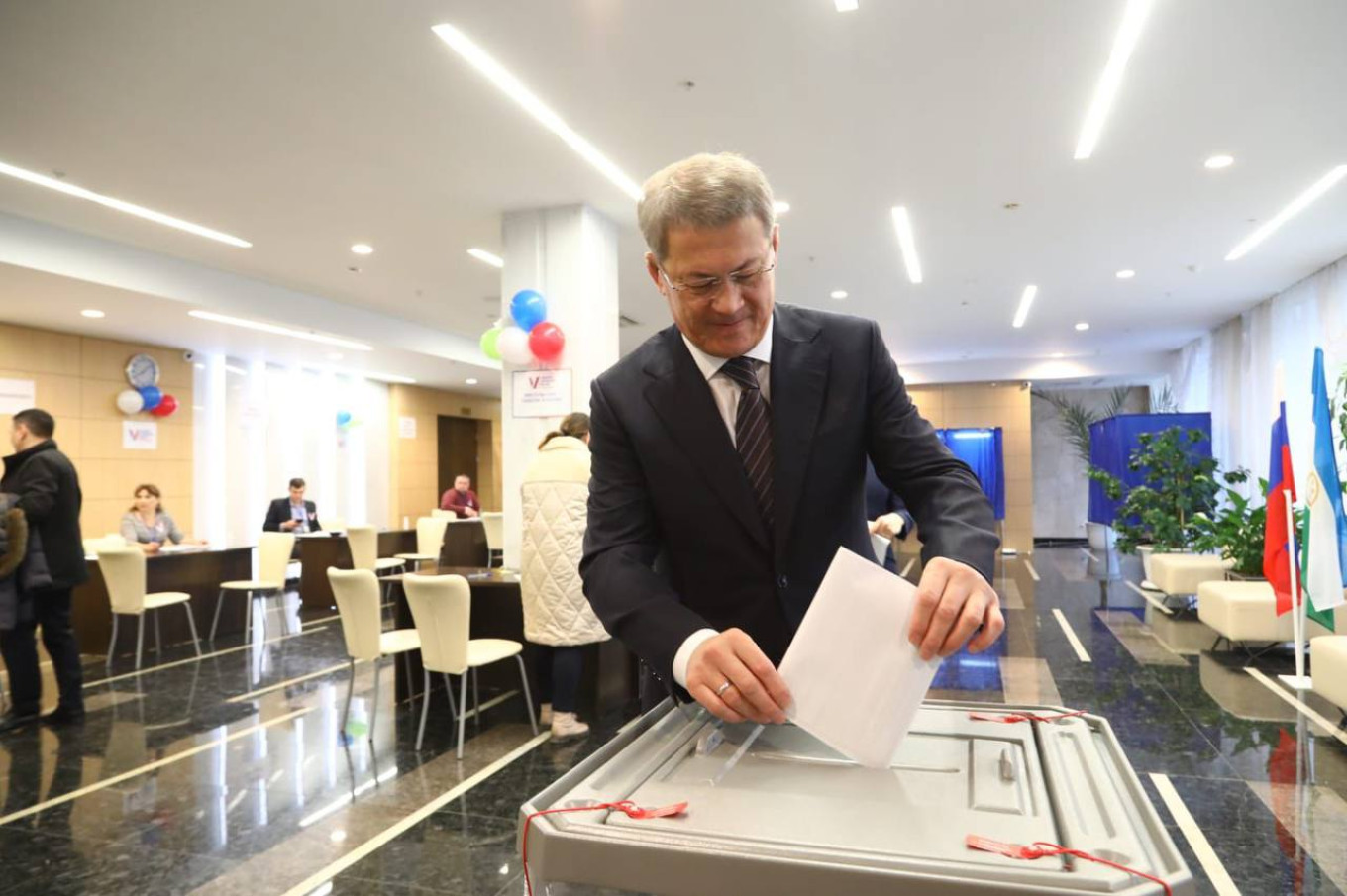
Tyva, the homeland of Defense Minister Sergei Shoigu, has suffered some of the highest losses in Moscow’s invasion of Ukraine.
“The fact that some people now equate this war to Putin is already great,” said Kuular. “Together with our volunteers, we are trying to make this translate into protest votes.”
Though New Tuva has called on its supporters in the republic to vote against Putin, the movement stopped short of endorsing any one alternative candidate, nor has it come to a consensus on whether to join the "Noon Against Putin” protest called by allies of late Kremlin critic Alexei Navalny.
“It is still important to tell people that this action will be taking place, so people who can’t express their anti-war position otherwise can do so by joining it,” Kuular told The Moscow Times. “But some [of our members] — especially those inside the country — believe that this is a setup that could lead to worsening repressions,” Kuular said.
New Tuva’s position appears to be shared by many other indigenous and minority activist groups, most of which refrained from promoting Team Navalny’s protest action in their regions.
“Free Yakutia is not joining the ‘Noon Against Putin’ action. We believe that people should make their own decision about when to vote,” said Sargylana Kondakova, a co-founder of the Free Yakutia Foundation, an anti-war and indigenous rights group from the Far East republic of Sakha (Yakutia).
“We tell our followers that they need to vote because that is the only [safe] way to express one’s political position still available to Russian citizens,” Kondakova told The Moscow Times. “We ask them not to vote for Putin, but choose any other candidate whom they see fit.”
But while activists are working overtime to mobilize potential anti-Putin voters through social media and with the help of in-country volunteers, regional governments have been doubling down on using tried-and-true tactics of rallying votes in favor of the acting president.
Billboards and advertisements that sprang up across Sakha in recent weeks show famous local athletes and celebrities endorsing Putin.
The local government has invested “enormous funds” into television and internet ads for Putin’s campaign in both the Russian and Sakha languages, according to Kondakova.
“Of course, they will rig the votes,” Kondakova said when asked about her predictions for the election’s outcome in Sakha. “[Sakha’s head] Aysen Nikolaev is ready to do anything because he is scared to death of the Kremlin.”
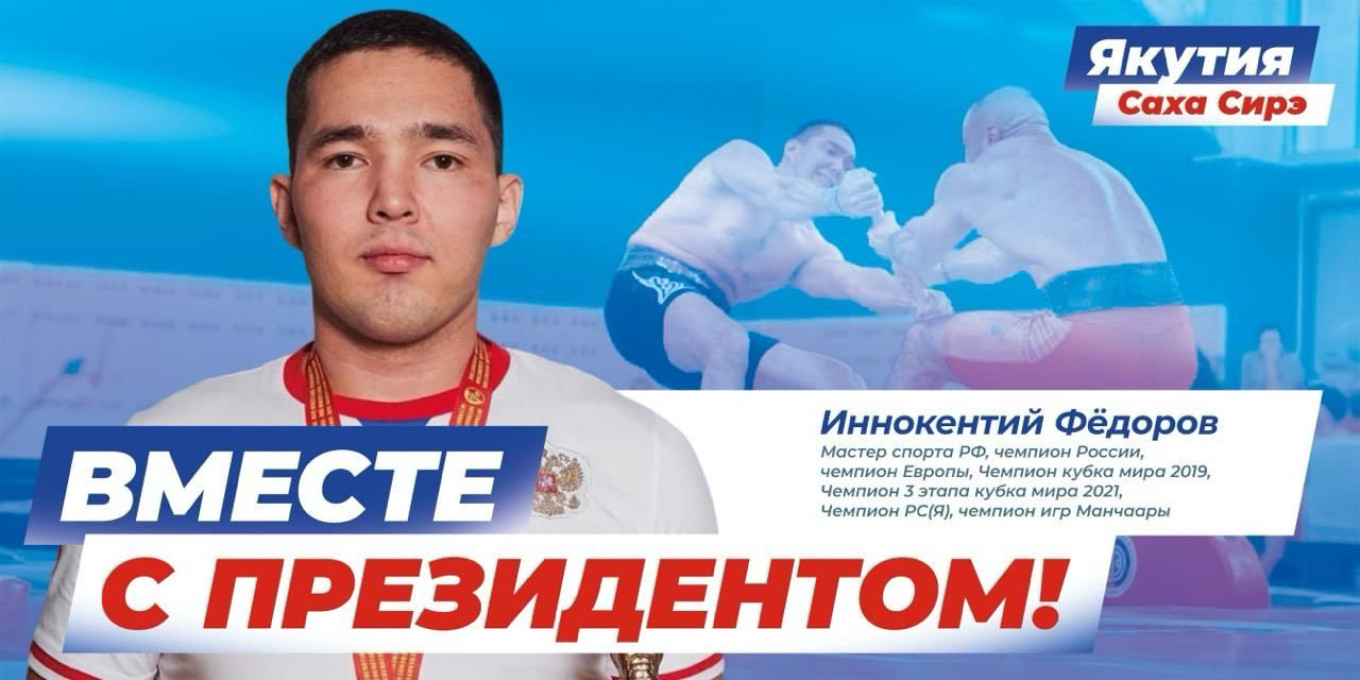
In Tyva, public sector workers and students are actively pressured to vote for Putin by their employers and superiors under threat of “losing salaries, pensions and family support payments,” according to Kuular of New Tuva.
“Heads of villages do these tours across herding camps [set up by indigenous nomads],” said Kuular. “They arrive, load people in a UAZ van and bring them to a nearby polling station. There, they just show them which candidate to put a checkmark next to and where to sign — all in exchange for a free T-shirt.”
These efforts by local Kremlin-appointed politicians to deliver favorable results for Putin might not even be the greatest challenge for democratically minded activists from Russia’s ethnic republics.
Instead, their most enduring enemy is the all-consuming sense of political apathy.
“Most people are tired…They have no time for the elections, but think of how to survive until the next paycheck,” said Kuular.
“They feel indifference mixed with anger.”
A Message from The Moscow Times:
Dear readers,
We are facing unprecedented challenges. Russia's Prosecutor General's Office has designated The Moscow Times as an "undesirable" organization, criminalizing our work and putting our staff at risk of prosecution. This follows our earlier unjust labeling as a "foreign agent."
These actions are direct attempts to silence independent journalism in Russia. The authorities claim our work "discredits the decisions of the Russian leadership." We see things differently: we strive to provide accurate, unbiased reporting on Russia.
We, the journalists of The Moscow Times, refuse to be silenced. But to continue our work, we need your help.
Your support, no matter how small, makes a world of difference. If you can, please support us monthly starting from just $2. It's quick to set up, and every contribution makes a significant impact.
By supporting The Moscow Times, you're defending open, independent journalism in the face of repression. Thank you for standing with us.
Remind me later.



